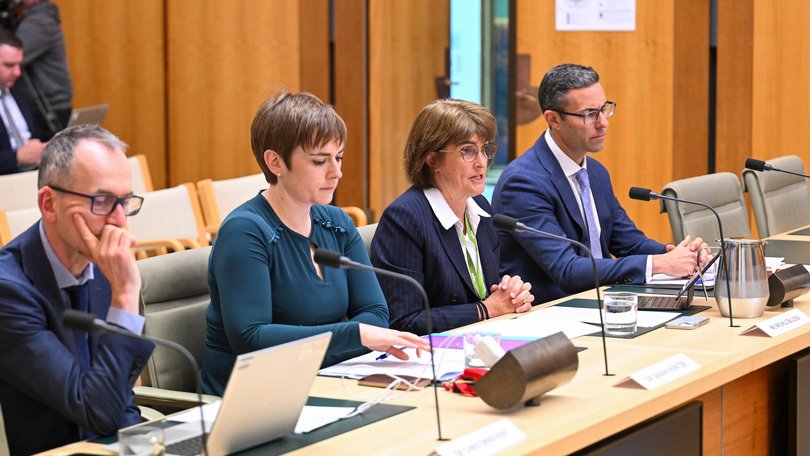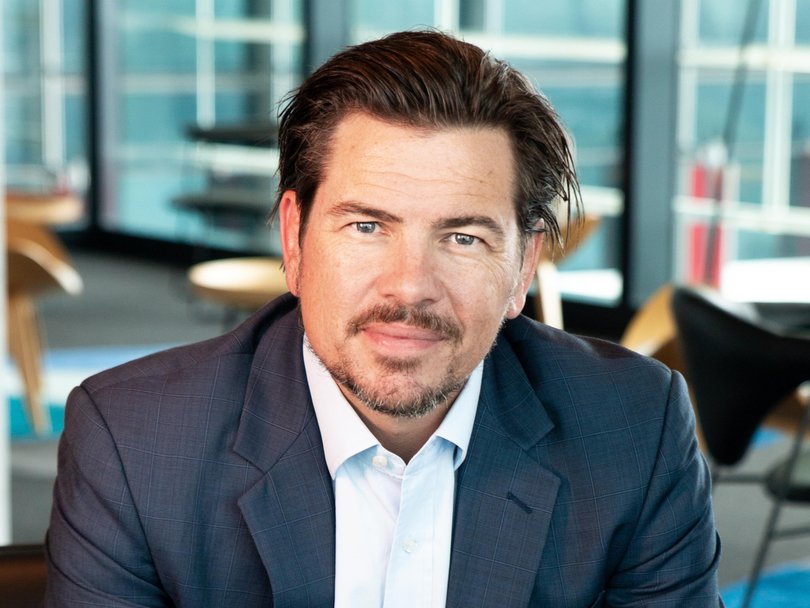‘Panic button’: Economists predict Reserve Bank interest rate rise as early as February after inflation shock
Leading economists, including one who worked for the Reserve Bank of Australia, are warning of interest rate rises next year

Confidence among economists that the Reserve Bank of Australia has brought inflation under control is ending, raising expectations that the next change in interest rates could be a hike, possibly as soon as February.
Financial markets and economists were shocked Wednesday when inflation hit 3.2 per cent, the highest level since mid-2024.
Former Reserve Bank economist Zac Gross said the central bank would have to raise interest rates in February if inflation does not come under control by December.
Sign up to The Nightly's newsletters.
Get the first look at the digital newspaper, curated daily stories and breaking headlines delivered to your inbox.
By continuing you agree to our Terms and Privacy Policy.“If we get a second print that’s also quite strong, I think that’s when the RBA will if not hit the panic button, then hit the act-now button and an interest rate hike will be on the table,” he told The Nightly.

HSBC chief economist Paul Bloxham said the Reserve Bank was more likely to raise interest rates than cut them, arguing inflation is unlikely to fall back to the midpoint of the central bank’s 2 to 3 per cent target band soon because of poor workplace productivity.
“We think they’ll remain on hold all through next year and we think it’s likely that the next move for the RBA is probably going to be up rather than down in 2027,” he told The Nightly.
Inflation danger
On a quarterly basis, the 1.3 per cent increase in the consumer price index in the three months ended September 30 was the worst since March 2023, when the Reserve Bank was still raising interest rates.
A strong inflation figure in December could lead the Reserve Bank to consider hiking rates after the summer holidays.
Until Wednesday, the Commonwealth Bank forecast a cut in February. Australia’s biggest home lender now sees no more relief. ANZ, Westpac and NAB predict a rate cut in 2026, but it could be delayed.
ANZ’s head of Australian economics, Adam Boyton, said a February cut could be pushed back until May so the RBA could assess if inflation would be likely to consistently moderate.
“Every now and then, the economy throws up a bit of a wild card in the form of data,” he told The Nightly. “If the economy’s a bit stronger, you may want a little bit more data to make sure that the stance on policy is appropriate.”
Even before Wednesday’s inflation data, the futures market a day earlier had stopped predicting a November 4 rate cut on Melbourne Cup day, after RBA Governor Michele Bullock told an Australian Business Economists dinner that inflation was “a little bit higher”.
This saw pricing for relief next month plunge from 62 per cent to 39 per cent.
Australian government bond yields, with a one-year maturity, have this week climbed from 3.4 per cent to 3.6 per cent in a sign traders at least see no rate cuts on the horizon.
An hour before the race that stops a nation, the RBA is releasing a new set of forecasts.
Prominent bond fund manager Christopher Joye said the RBA had bowed to public pressure when it cut rates this year, and would have to consider reversing policy in a year’s time.
“Yes, last year we argued the RBA should go to 5 per cent like other central bank. Since December 2024, we’ve forecast the RBA would cut rates two to three times, not because they needed to, but because we believed that is what they wanted to do,” he told The Nightly.
“It does seem today like the cash rate will not fall further. Our long-held view has been hikes will come back on the table in 2026/2027.”

Mr Bloxham is no longer forecasting relief in November and February, changing his forecasts on Wednesday. “There’s more inflationary pressure in the economy than was thought. It’s not a narrow segment of the CPI, it’s a broad-based story,” he said.
“It does change the way we think where the economy is at right now. The economy is at or beyond its full capacity and that means the RBA won’t have a choice to cut interest rates further, in our view.”
Dr Gross, now a senior lecturer at Monash University, said that in hindsight, the RBA had prematurely reduced rates in 2025 because it thought inflation would stay within the middle of its target range, even with unemployment at lower than usual levels of 4.1 per cent to 4.3 per cent earlier this year.
“Maybe, cutting was premature. It’s hard to say for sure when a mistake is a mistake. The data was looking good back then,” he said.
“It’s hard to justify not cutting rates when inflation was well back inside the band but I think in retrospect, if not a mistake, then an unfortunate sort of messiness in the data which meant that interest rate cuts came too early.”
Dr Gross said the RBA had failed to stop services inflation rising by 3.5 per cent over the year, even though domestic factors like wages are the key driver instead of global supply constraints like an oil shock. Services inflation was well above the underlying inflation rate of 3 per cent, known as the trimmed mean, which strips out volatile price movements.
“The type of inflation that the RBA has the most control over. If it’s service-based inflation, that’s the haircuts we get, the health services we provide, the education, the building services that we consume when we build a house, that’s all domestically driven,” he said.
“It’s definitely more robust than what they were expecting, no two ways about that. Forecasting’s a hard game but it’s definitely a mistake that the RBA will be wracking their brains to see if it’s a mistake with long-term implications or whether it’s a mistake that might quickly resolve itself.”

